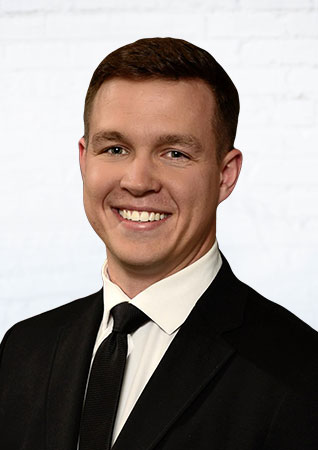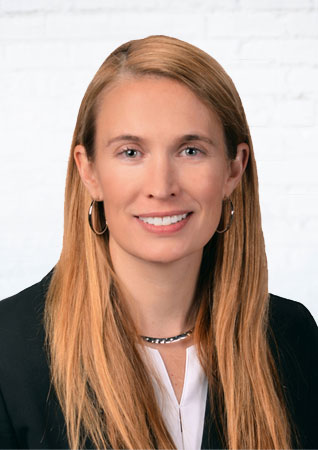At Tronfeld West & Durrett, we’ve handled cases where passengers were seriously injured while riding to work, where an Uber driver was rear-ended downtown, and where Lyft’s insurer disputed coverage after a highway crash. In each situation, the pattern is the same: complex liability fights and insurers trying to pay as little as possible. Our Richmond car accident lawyers know how to cut through those disputes and secure meaningful recovery.
How a Richmond Rideshare Accident Attorney Can Help You
In one recent case, our attorneys obtained a seven-figure settlement for a rideshare passenger who required multiple surgeries after another driver ran a red light. The rideshare company’s insurer initially denied responsibility, but we uncovered app data and traffic camera footage that proved the driver was logged in and transporting a passenger, triggering the full $1 million policy. That result gave our client the resources to cover extensive rehab and lost earning capacity.
What separates rideshare accidents from a typical fender bender is the web of insurance coverage. Responsibility can shift depending on whether the Uber or Lyft app was open, whether the driver had accepted a ride, or whether another driver caused the crash. Victims often discover that their own insurer, the rideshare driver’s policy, and the rideshare company’s commercial policy are all pointing fingers at one another.
Attorney Jay Tronfeld explains: “The first question we ask is whether the driver was logged into the app. That one detail often determines whether you’re stuck fighting a personal policy with low limits or whether the $1 million commercial coverage applies. If you don’t establish it right away, the company will argue you were never entitled to that protection.”
For answers to your questions about a rideshare accident in Richmond, call:800-321-6741
Who May Be Liable in a Richmond Rideshare Accident?
Rideshare accidents are a significant concern both in Virginia and nationwide. A recent study found that one-third of rideshare drivers surveyed had been involved in a car crash while working. The research demonstrated that rideshare drivers have a much higher crash rate on non-interstate roads – approximately 1,400 crashes per 100 million vehicle miles – compared to other drivers at just 224 crashes per 100 million miles.
But unlike two-car crashes, rideshare accident cases often involve overlapping insurance policies and multiple at-fault parties. Depending on the circumstances, responsibility may fall on:
- The rideshare driver if they were negligent, such as texting, speeding, or ignoring traffic signals.
- Uber or Lyft if the driver was logged into the app, with liability limits tied to the driver’s trip status.
- Another motorist if their careless actions caused or contributed to the collision.
Our attorneys know how quickly insurers try to shift blame in these cases. In one case, a Lyft driver and another motorist each denied fault, leaving the passenger’s injuries in dispute. By presenting phone records, trip data, and accident reconstruction evidence, we proved both drivers shared liability and recovered damages from more than one policy. That type of layered strategy is what allows us to maximize recovery for our clients.
Virginia Rideshare Insurance Coverage and Its Impact on Your Claim
Virginia law requires minimum auto liability coverage, but rideshare drivers operate under a different set of rules once they open the app. The policies apply as follows:
- App off: Only the driver’s personal insurance is available.
- App on, no ride accepted: Uber and Lyft extend limited coverage, typically $50,000 per person and $100,000 per accident.
- Ride accepted or passenger in vehicle: Coverage expands to a $1 million commercial liability policy, plus uninsured/underinsured motorist protection.
Insurers often argue over which stage applied at the time of the crash. To resolve these disputes, we obtain app activity logs, electronic receipts, and witness testimony that confirm whether the rideshare company’s commercial policy should apply. When Uber or Lyft attempts to deny coverage, we rely on Virginia law and documented evidence to force them to honor the $1 million policy.
Click to contact us today
Injuries You Can Claim in Richmond Rideshare Accidents
While companies debate coverage, victims are left coping with medical bills, missed work, and long recoveries. At Tronfeld West & Durrett, we make sure those injuries are fully documented and presented so they cannot be minimized.
- Head and brain trauma: Concussions and TBIs that may surface days after the crash.
- Spinal injuries: Herniated discs or spinal cord damage requiring long-term care.
- Fractures: Broken arms, legs, and ribs often needing surgery or rehab.
- Soft tissue injuries: Whiplash and ligament tears that insurers try to dismiss.
- Emotional trauma: Anxiety or PTSD that interferes with daily life and work.
Through a comprehensive approach that combines hospital records, specialist reports, and personal accounts, our rideshare accident attorneys demonstrate how these injuries impact every aspect of life – from health to income, independence, and family relationships. This thorough documentation ensures you won’t bear the financial burden for another driver’s negligence.
Complete a Free Case Evaluation form now
Compensation You May Be Entitled To After a Crash
Victims of rideshare accidents often underestimate the scope of damages they can recover. Compensation may include:
- Medical expenses for emergency treatment, surgeries, therapy, and future care.
- Lost wages and reduced earning ability when injuries keep you from working.
- Pain and suffering are tied to physical recovery and emotional trauma.
- Wrongful death damages in fatal cases, including loss of companionship and funeral costs.
In our experience, insurers frequently attempt to minimize categories like pain and suffering or future wage loss. That’s why our attorneys build claims using expert medical testimony and vocational analysis to prove the true long-term costs of a rideshare crash.
Contact Tronfeld West & Durrett About Your Rideshare Accident
When you work with our team, you get both the resources of one of Virginia’s largest personal injury firms and the personal attention of lawyers who know Richmond’s courts, judges, and juries.
If you or a loved one were injured in a rideshare crash, contact our Richmond car accident lawyers today. We are committed to protecting your rights and fighting for the full recovery you deserve.
FAQs About Rideshare Accidents in Richmond, VA
What should I do immediately after a rideshare accident in Richmond?
Call 911, get medical care, and make sure the police create an official crash report. In Richmond, that record often determines how liability is assigned later. Save app screenshots, receipts, and driver details to show the trip was active.
Who pays for my injuries in an Uber or Lyft accident?
Liability depends on the driver’s status in the app at the time of the crash. If they had accepted a ride or you were a passenger, Uber or Lyft’s $1 million commercial policy usually applies. If the app was on but no ride was accepted, coverage is limited. If the app was off, only the driver’s personal insurance is available.
Can I sue Uber or Lyft directly after a crash in Virginia?
It’s rare to sue the company directly because Uber and Lyft classify drivers as independent contractors. Instead, compensation typically comes through the layered insurance coverage. However, our attorneys know how to pursue claims against multiple insurers to maximize recovery.
What if another driver caused the rideshare crash?
If a third-party motorist was responsible, their insurance is primary. If they are uninsured or underinsured, Uber or Lyft’s policies may provide additional coverage. We often build cases using both sets of insurance to ensure clients aren’t left paying out of pocket.
How does Virginia’s contributory negligence law affect rideshare accidents?
Virginia is one of the few states where if you are found even 1% at fault, you may be barred from recovery. Insurance companies in Richmond often exploit this rule to deny claims. Strong evidence like app logs, police reports, and medical records helps counter these arguments.
Do passengers in Richmond rideshare accidents have stronger claims than drivers?
Yes. Passengers are almost never considered at fault, which means contributory negligence arguments rarely apply. That makes documentation of injuries and trip status especially important for passengers.
How long do I have to file a rideshare accident claim in Richmond?
In Virginia, you generally have two years from the date of the accident to file a personal injury lawsuit. Claims against government entities (for crashes involving city vehicles or unsafe road conditions) may have shorter notice deadlines, so acting quickly is important.
Richmond Office
4020 West Broad St
Richmond, VA 23230
Phone: 804.358.6741
Toll Free: 800.321.6741
Call or text 800-321-6741 or complete a Free Case Evaluation form








